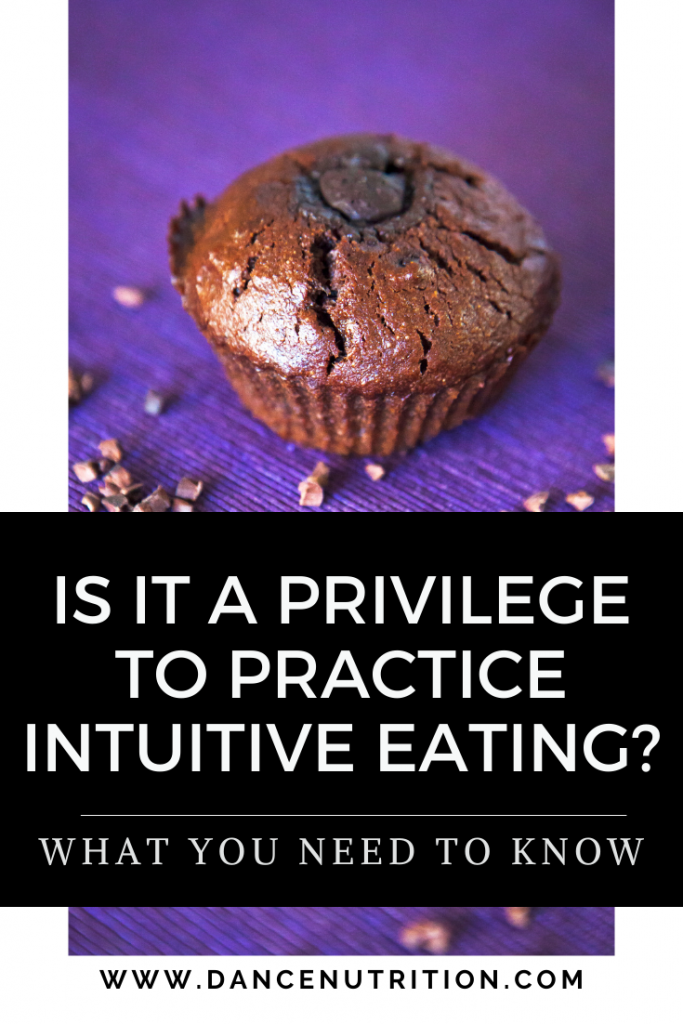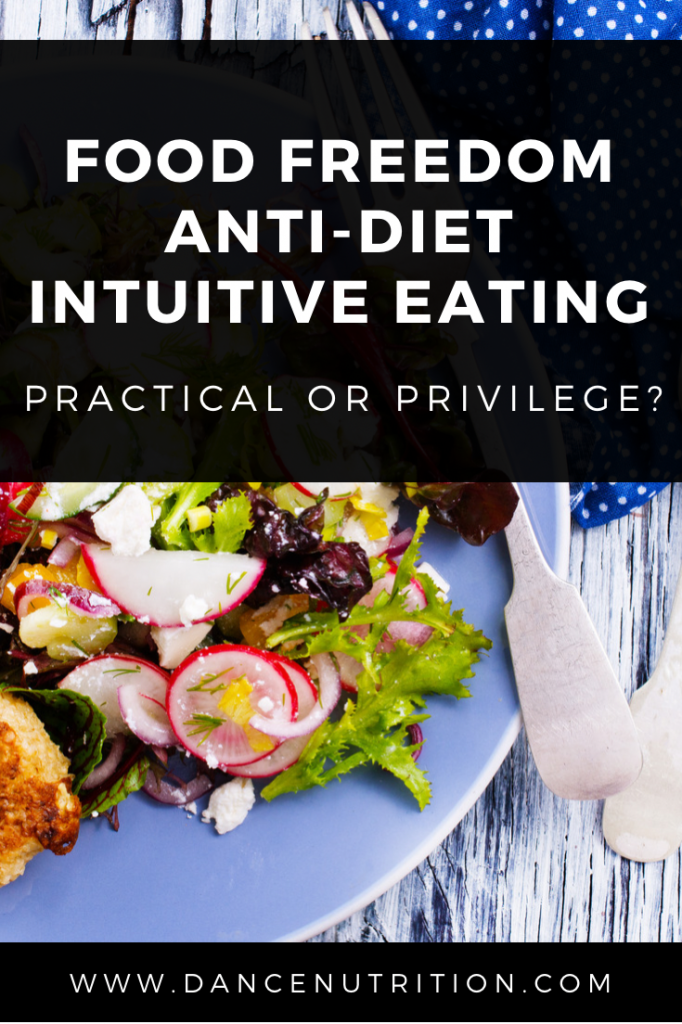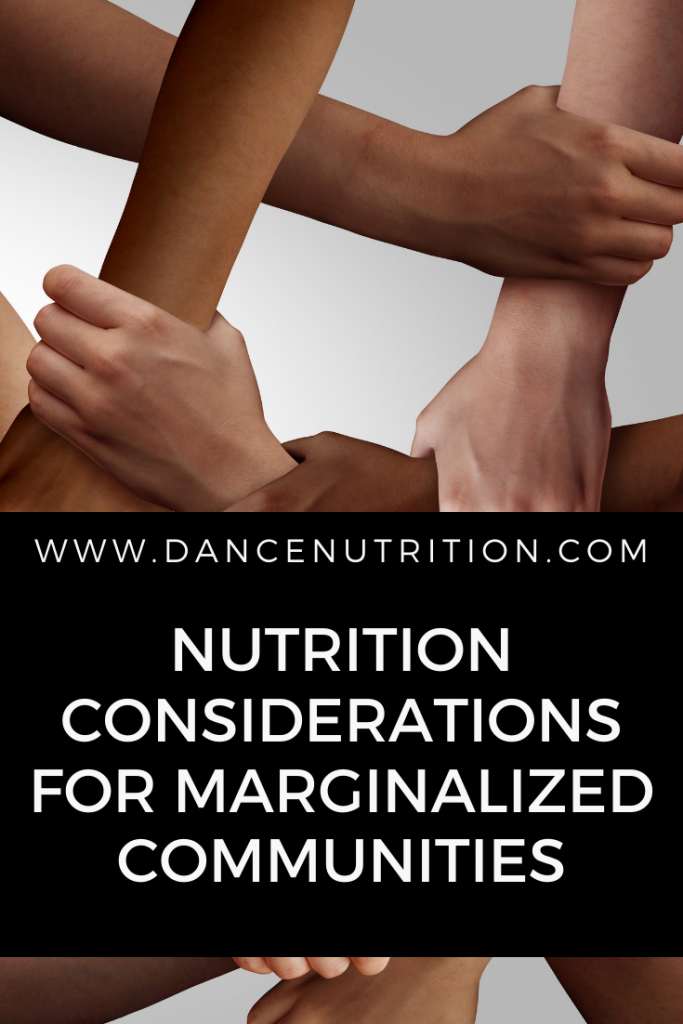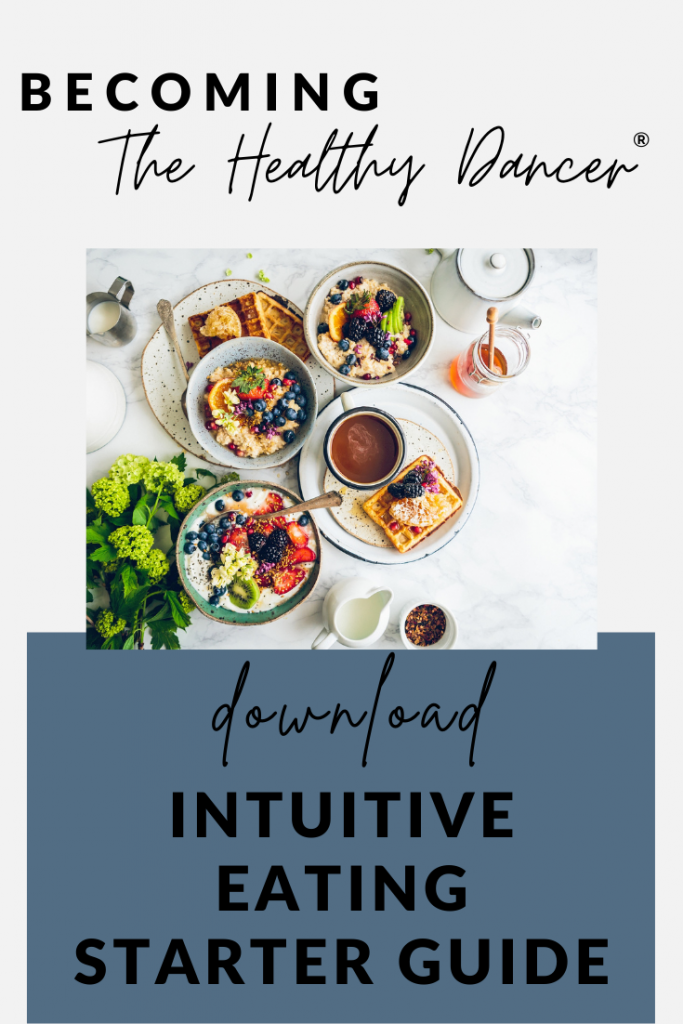Search hashtags like #IntuitiveEating or #FoodFreedom, and you’ll likely find curated images of colorful smoothie bowls, perfectly portioned snack plates, and an effortless balance between kale and cookies.
But for many, eating with ease and flexibility feels anything but effortless. What’s often portrayed online as “food freedom” can seem far from reach— especially if you live in a world where consistent access to food, let alone culturally appropriate or “healthy” food, isn’t guaranteed.
At first glance, Intuitive Eating can seem easier for those with consistent access to food and resources, but anyone can adapt its principles to their situation. This article focuses on practical strategies to help anyone build a healthier relationship with food, regardless of personal circumstances.
Why Intuitive Eating Can Feel Exclusive
The social media version of “anti-diet” often overlooks a critical truth: not everyone has equal access to food. In the U.S. alone, over 38 million people— including 12 million children— experience food insecurity. That means they lack reliable access to enough food to live an active, healthy life.
Here are some practical challenges that can make Intuitive Eating feel harder to implement for some people:
- Financial insecurity and rising food costs
- Food deserts, or low-income areas where more than 23.5 million people in the U.S. have limited access to grocery stores.
- Experiences with weight bias, which can impact healthcare interactions and overall well-being
- Disability, impacting mobility, income, and eating autonomy.
- Chronic illness, which makes it challenging to support basic human needs like listening to hunger/fullness cues.
- Neurodivergence, such as autism, may impact interoception and the ability to community hunger or fullness.
- Overworked schedules, where time becomes a barrier to nourishment.
So when Intuitive Eating is boiled down to “just listen to your body” or “eat when you’re hungry,” it can understandably feel tone-deaf or overly simplistic. The ability to walk (or drive) to your local bakery for freshly baked cookies when cravings hit is a privilege.
But here’s the truth…
That’s Not What Intuitive Eating Is
Intuitive Eating is not just about listening to hunger and fullness cues— it’s about rebuilding trust with your body and rejecting the external rules that diet culture has imposed on how, when, and what we should eat.
It’s not anti-health.
It’s not anti-nutrition.
And it’s definitely not anti-dieter.
I don’t work against people who want to lose weight. I focus on addressing the pressures and cultural messages that link worth to body size or dieting. Anti-diet means anti-diet culture: challenging rules and norms around food and body image that can cause harm.
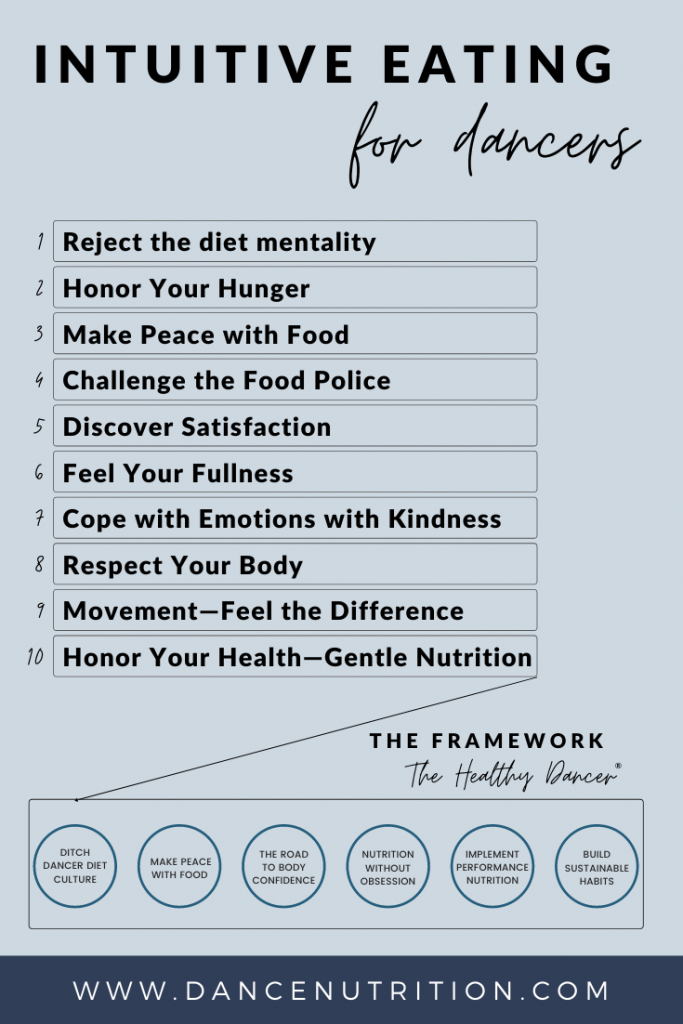
The Privilege Lies in the Ability to Prioritize Satisfaction
As Elyse Resch, co-author of Intuitive Eating, has shared, the real privilege isn’t in the eating itself— it’s in having the means to pursue pleasure and satisfaction with food.This is what distinguishes Intuitive Eating from techniques like Mindful Eating and The Hunger/Fullness Diet. So listening to satiety cues and discovering satisfaction are both aspects of intuitive eating, but they’re not the entirety.
That said, intuitive eating isn’t out of reach. It can be adapted to any body, budget, or background.
Eating With Ease is a Birthright, Not a Bonus
We’re all born with the skill of knowing when our bodies need energy replenishment. At some point between childhood and adulthood, diet culture impedes these abilities, and wrongful messaging around what’s “right” and what’s “wrong” for say, “health,” infiltrates our ability to fuel. Intuitive eaters rebuild trust from within. At its core, intuitive eating is about:
- Respecting your body’s basic need for calories
- Viewing food through a neutral lens
- Letting go of guilt and shame around eating
- Relearning how to honor internal cues without rigid external rules
- Making peace with food—including processed or convenience foods
And while it’s a journey that looks different for everyone, it’s also one that should be inclusive— not exclusive.
Intuitive Eating As An Inclusive Approach
Intuitive Eating isn’t about perfection. It’s about permission. And everyone—everybody—deserves that. No matter your body size, income, background, or ability, you deserve to eat without shame. That includes access to education, resources, and support that help you move beyond diet culture.
If you’re just getting started, here are a few important reads from my blog:
- Dismantling the Stigma Against Processed Foods
- Demolishing Clean Eating Lifestyles
- Why “Everything in Moderation” Isn’t Helpful
- The Power of Food Neutrality
And if you want to dive deeper into this work, here are some experts and advocates whose work highlights inclusive, evidence-based approaches to nutrition and body trust:
- Rebekah Taussig – Disability rights advocate who educates about the many ways in which diet culture affects people with disabled bodies.
- Dr. Kera Nyemb-Diop – Non-diet nutritionist and founder of Decolonize Your Plate™, who teaches us how to challenge cultural appropriation at meals.
- Blair Imani – Author educating about how to approach intersectionality in an informed, compassionate, and socially conscious way.
